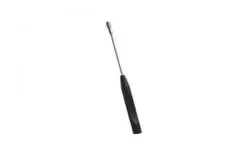The word zootechnics was created in 1843 and derives from the Greek zoon = animal and techne = treatise, it means that it is an art, that is, it is a science responsible for the creation, production and management of domestic and domesticated animals. The zootechnician also aims to increase the productivity of derivatives of these animals.
Working with zootechnics goes beyond just liking animals; the professional in this area is concerned with the welfare of people so that they live in good conditions, with a focus on their feeding, health, reproduction and increased productivity of their by-products, such as eggs and milk.
In addition, the zootechnician is also attentive to the time of slaughter or killing of the animal, seeking ways to minimize their suffering without harming the quality of the final product, the meat.
A Master Degree in Zootechnics promotes interinstitutional and multidisciplinary actions of applied research, addressing not only the diagnosis of problems but also scientific solutions to problems related to animal production systems in the world.
A Master Degree in Zootechnics serves to develop professionals at the graduate level to meet the demands of institutions in teaching, research and community outreach in the field of animal science and technology. There are universities and institutes that offer this Master’s program free of charge or with scholarship or student loan options.
What is a Master Degree in Zootechnics ?
The main objective of the Master in Animal Husbandry is to contribute to the scientific and technological development in this field of knowledge, increasing efficiency and establishing sustainable animal production.
With a Master Degree in Zootechnics you will learn to develop the main animal production systems; identify the main problems that need scientific and technological development; lead the technological development through scientific actions. Specializations in this field can be in two main areas.
Nutrition and production of non-ruminants, in this line of research includes the production and nutrition of poultry, pigs, fish and other non-ruminant species of economic importance. And the Nutrition and production of ruminants, in this line of research includes the production and nutrition of beef and dairy cattle, sheep, goats and other ruminant species of economic importance.
Program, Subjects and Content of the Master Degree in Zootechnics
These are some of the subjects that may be included in the program content of a Master Degree in Zootechnics:
- Teaching practices
- Experimental statistics applied to animal production
- Scientific method
- Seminars
- Nutrition and non-ruminant production
- Swine welfare
- Poultry nutrition
- Fish nutrition
- Swine nutrition
- Swine production system
- Poultry production system
- Ruminant nutrition and production
- Feed Preservation for Animal Production
- Forage plant physiology and management
- Ruminant nutrition
- Beef Cattle Production System
- Dairy cattle production system
- Sheep meat production system
- Environment applied to animal production
- Physiology of digestion in production animals
How Long Does the Master Degree in Zootechnics Take ?
A Master Degree in Zootechnics lasts approximately 1 to 2 years, full-time. Time will depend on factors such as the country of origin, the institution or university that offers the Master’s program, the study plan, program delivery mode, schedules, whether it is taken partially or completely, among others.
Where can I Work with a Master Degree in Zootechnics ?
Graduates of a Master Degree in Zootechnics work in clinics, laboratories and private animal hospitals. Their jobs can be physically or emotionally demanding. Many work evenings, weekends or holidays. Jobs directly related to their degree include:
- Academic researcher
- Animal nutritionist
- Animal physical therapist
- Animal technician
- Nature conservation officer
- Zookeeper
- Zoologist
Countries and Cities Where You Can Study the Master Degree in Zootechnics for Free by Obtaining a Scholarship
- Brazil
- Portugal
- Czech Republic
- Hungary
- Poland
- Lithuania
- Israel
Institutes, Centers and Universities Where the Master Degree in Zootechnics is Possibly Taught for Free, Through Scholarships
Master Degree in Zootechnics
- Federal University of Grande Dourados
- Dourados, Brazil.
Master Degree in Zootechnics
- University of Coimbra
- Coimbra, Portugal.
Master Degree in Zootechnics
- University of South Bohemia in České Budějovice, Czech Republic.
- CSČeské Budějovice, Czech Republic.
Master’s Degree in Animal Breeding Engineering
- University of Debrecen
- Debrecen, Hungary.
Master’s degree in Animal Production Management
- Poznan University of Life Sciences
- Poznan, Poland.
Master of Science in Animal Science
- Lithuanian University of Health Sciences
- Kaunas, Lithuania.
Master of Science in Animal Science
- The Hebrew University of Jerusalem
- Rehovot, Israel.
Master Degree in Zootechnics Referential Prices
The prices of the Master of Science in Animal Science can vary. The prices of these Master’s degrees range from $5,100 to $29,300 per year. In some cases it can have a higher cost.
The cost of this Master’s degree will vary according to the country where it is offered, the institution or university that offers the Master’s degree, the modality, the duration and the materials provided during the study, among other factors.
Click for Other Studies at Different Academic Levels

FREE and PAID MASTER DEGREE ONLINE and In Person

FREE and PAID BACHELOR´S DEGREES: Online and In-Person

FREE and PAID COURSES Online and In Person

WHAT IS A DOCTORAL DEGREE ? Online and In-Person Programs

DIPLOMA DEGREE CERTIFICATE: Free and Paid Online and In Person Studies
Related Topics

FREE MASTER DEGREE IN OCCUPATIONAL MEDICINE

FREE MASTER DEGREE IN ACTUARIAL SCIENCE

FREE MASTER DEGREE IN PHYSICAL THERAPY

FREE MASTER DEGREE IN PUBLIC POLICY

FREE MASTER DEGREE IN ADMINISTRATIVE LAW

FREE MASTER DEGREE IN DIGITAL BUSINESS
Other Topics of Interest in ALPHAPEDIA

FREE BACHELOR DEGREE IN CLIMATOLOGY

FREE BACHELOR DEGREE IN EQUINE THERAPY

INOCULATING LOOP DEFINITION

💚 WHITE COLOR: Types, Psychology and Meaning

FREE DOCTORATE IN PEDAGOGY

BASKETBALL COURT DIMENSIONS
Image of MASTER DEGREE



